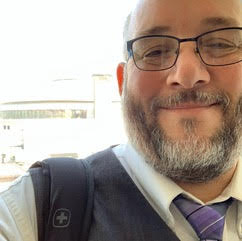American Politics, Learning to Debate, and Concepts of Good-Mindedness
I am struck by the irony of watching American politics while abroad and by association the media, while I am developing a relationship with the community of Six Nations and people here in Canada. The days and weeks are flying by, and while I am writing, there is so much more I want to write about here and for my own thinking. And this is part of becoming part of a community—engaging in conversations, visiting, and for me-reflection.
I have had some interesting experiences, and even some interesting challenges to my research area and person-though I understand and accept it; for in some ways I am unknown on a personal level, and I am an academic. Given the fraught relationship academics and Indigenous communities have historical had, even as an Indigenous scholar—it is a fair question to ask, what are my aims and why am I doing this?
The world some days certainly seems out of control lately. There are consistent protests, sometimes shouted down by “the opposition” or minimized by the media. The executive branch has created chaos, shown to be opportunistic, and displayed childish tantrums on social media. But how do we get the two sides together to start talking again, and begun earnest work on solving things for all peoples?
There is now a deep tribalism that exists in American politics that has been growing steadily for years, even decades. It is ugly, brash, and growing increasingly incendiary—to the point where many are starting to actual fear the end results and outcomes of rhetoric and increasing violence.
I have long been fascinated with politics, news, and how we understand the world. Perhaps some of that stems from experiences with my grandfather, mom’s dad-Jim or Joe, depending on who you asked. But he and grandma had a routine down for evening time. One I grew to enjoy, and now miss my time with both gone.
Dinner was from 5 to 6 pm. This was pre-cable, and 24-hour news cycles, so there was only the local/state news at 6 pm, followed by the national news at 6:30 pm; while grandma cleaned the kitchen up from dinner, grandpa and I would watch the news. Grandma than sat down and enjoyed Wheel of Fortune and Jeopardy-this was her time. Grandpa and I would debate a topic from each news—local and national, either outside or at the kitchen table quietly.
As I grew older, grandpa would make me argue the opposite of what I had already outlined in my head—but never allowed me to simply say black, if my argument had been white. I think this process has greatly aided me in my academic career—beyond just my natural curiosity about and in life. But I have often wondered recently, what would my grandfather say about the world today? He loved a good debate, but is what we do today called debate?
Or is it more like watching a Jerry Springer show for entertainment and calling it debate, today. The media has continually and even enthusiastically thrown chum into the water masquerading it as debate—furthering the divide, because it’s good for ratings and entices commercial endorsements?
Even worse to me is this notion that every position or side must have equal air time to at times say absurd things, or “alternative facts.” To me a huge concern is that the media does not call out, or passively and too politely corrects their guest—what would Edward R. Murrow say about today’s media and news?
Last week, I had the opportunity to listen to Rick Hill present a discussion on Good-Mindedness, during a Lunch and Learn talk at Six Nations Polytechnic. This notion of the Good Mind is perhaps one of the largest frameworks of the Haudenosaunee culture and worldview. The Good Mind is how we are to live on this earth—in a relationship with the natural world, with each other, and with the spiritual ways of our communities and natural world.
While it was best as a long talk time passed much too briefly in one hour, it had several elements that I have been ruminating on since the talk last week. So, what then is Good Mindedness? In my understanding, and from what I took away from the talk—it is an attempt, or how we ought to try and live each day.
It is an ideal that we ought to aspire too, and seek—one that can be achieved in some degree, but always improved upon within ourselves and within our communities and with the natural world. In short, it is a philosophy of how to try and live life in a tumultuous, uncertain, and yes at times a dangerous world we find ourselves in collectively today.
But this narrative was composed and contemplated in the ancient past—before contact with Western culture. Yet, I think it had relevancy to today’s discussions. It is way of thinking about and engaging life.
Just as our ancestors did in the situations and environments when these ways of thinking were taught to us as a culture and community. This stems from a time where chaos, fear, and violence were a fact of daily life. Then the Great Law—or Good-Mindedness was taught to us. Each generation, in my thinking, must hear the ancient ways of approaching life, consider how they might apply those lessons and values in the narratives, and then bundle it all together to pass onto future generations.
But Hill noted some very interesting frameworks that are core concepts of Good-Mindedness. One of the points that resonated with me is this notion of peace being a state of mind. Another key also contained in the conceptual frameworks of Good-Mindedness includes showing compassion, kindness, and empathy to others—and not just humans. Another one that requires a deeper commitment is being truthful and consistent in dealings with each other and the natural world.
While modern culture espouses these as foundations of the modern world—the ideals are not as easily achieved. Nor should they be—they are aspirations to achieve, or more precisely continual work towards. There will be days that we make great strides and even achieve an understanding of Good-Mindedness, but those moments will be fleeting—which then requires our renewing efforts towards these ideals.
Modern Western culture, at the current moment, fails at the next few aspects of Good-Mindedness. The ways of thinking and engaging the world around us, and each other, requires us to take responsibility for our thoughts, words, and conduct. But in line with empathy, we must also give strength and be supportive of one another. While failure or weakness is often difficult to deal with, understand, or accept—we must find a way to deal with our weaknesses too. Though as a pop-culture reference suggests—failure is not an option—while it is in life, and it happens, but we are supposed to learn from it.
The last concept is perhaps the most difficult, and hardest to achieve. Many parts of Haudenosaunee culture and thinking require of us to work together and come to one mind. This seems unobtainable in a very realistic sense, but are there places, moments, and ways of thinking where our way is not the only way-and we can have earnest and even fruitful discussions about the best course forward not only for ourselves as individuals, but as a community and a nation? The key is hearing and truly listening to one another.
Does being of one-mind mean that we all agree in unanimity, or might it mean we have arrived at a place where we have moved this subject as far as we can for the time being—but everyone’s voices and value has been heard and accepted? Thus, in the sense of community and communication and the individual—people ultimately feel valued and included in the decisions and outcomes. This is the goal of Good-Mindedness in a communal sense, but I think individually Good-Mindedness relates to how we conduct ourselves in our daily lives and with others we encounter through our journey with the natural world and each other.
So, to wrap up, time is really moving along while I am in Canada. I watch with dismay and discouragement that which is happening the United States. And I have my next couple of entries brewing already—because this entry was not what I first envisioned. Rapidly changes circumstances, thoughtful discussions, and time to reflect are allowing so many avenues of contemplation to emerge, that I truly am needing to write to find out what I am thinking about at a given moment.
How do you understand and implement those notions of Good-Mindedness in your daily life?













